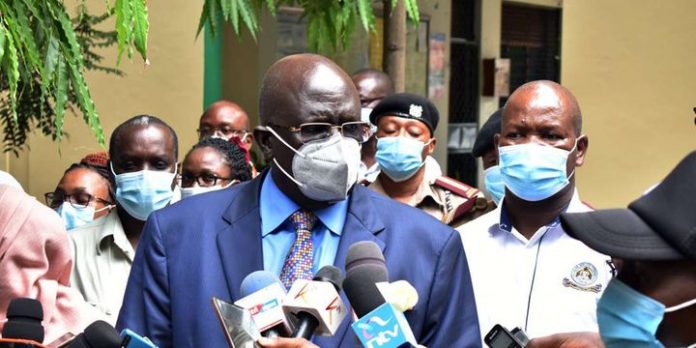
The Ministry of Education has dismissed the projection by the Kenya Medical Research Institute (Kemri) of new Covid-19 infections and deaths following the reopening of schools.
According to Kemri, Kenya will record thousands of new cases and deaths with learners’ return to school on January 4, after about a year at home.
However, Education Cabinet Secretary George Magoha dismissed the scientific projection insisting all learners are safe from the virus since they have masks.
“I am a top grade scientist with 43 years’ experience and the people I have trained are professors,” he noted in an address to the press.
“No hearsay”
Prof Magoha noted that it has now been three weeks since physical learning resumed. He asked journalists how many new cases of infection among learners have been reported so far.
“We are at the end of the third week since the reopening of schools yet the figures yesterday represented a 2.3 per cent infection rate. Do you want me to listen to your politics or look at the facts? By the grace of God, in his most infinite mercies, we have reopened schools. We have not provided social distancing to a large number of learning institutions but the learners are masked,” said Prof Magoha.
“I don’t listen to hearsay. Let us have hope for our children. I believe I shall be alive tomorrow because I fully trust in God. There is no guarantee that you shall be alive tomorrow. Why do we always look at the bad side? Let’s make sure our children wear masks. Life continues.”
Many variants
Kemri’s scientists also warned that 16 new variants of the coronavirus could be silently spreading in Kenya.
In total, there are now 20 variants in circulation in Kenya, four having been discovered in March last year.
One of the four variants first reported during the Kemri’s initial sequencing has mutated and is now raising concern among the team of researchers.
Dr Charles Agoti, a Kemri researcher and principal member of the team of investigators that reported the findings on Tuesday evening, noted, however, that the vast majority of mutations are often insignificant and have little impact









